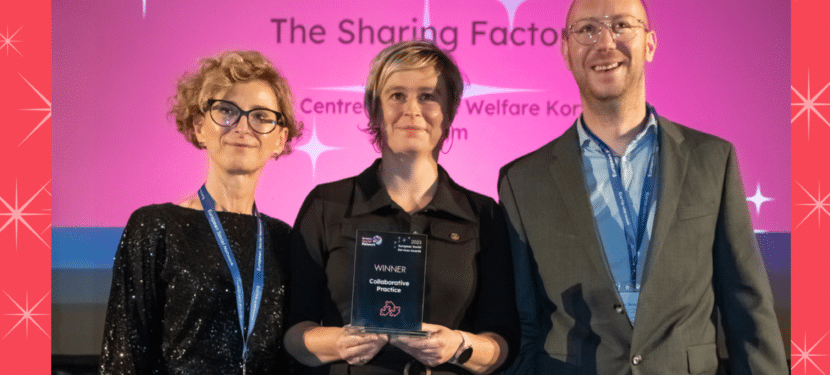Collaborative Practice Winner: The Sharing Factory
The Sharing Factory is a social and ecological shopping centre that promotes sharing as an alternative to ownership within the concept of the circular economy. A collaboration between government agencies, third-sector organisations and volunteers, the Sharing Factory hosts multiple shops offering items for shared and temporary use, such as clothing, household appliances, and bikes.
Discover the transformative journey of the Public Centre for Social Welfare Kortrijk, Belgium, as they share their remarkable story of innovation and community impact through their award-winning project, The Sharing Factory.
What does winning an European Social Services Award mean for your organisation? How do you feel about this recognition and experience?
We have been working on the project for several years, and it involves many people from different sectors and organizations who have all worked very hard. It is therefore very nice to be recognized for this work through the ESSA award. Participating and winning also gave us the opportunity to introduce our project to a very wide audience that we would not reach on our own.
Why did you choose to apply for the 2022 European Social Services Awards?
Because we are very proud of our project, which is a good example of a unique collaborative practice between different levels of government, public agencies, services, third and private sector organizations and dozens of volunteers all working together to improve the lives of vulnerable target groups.
What is the added value of being part of a European Network for your organisation? Why is it important to share practice and projects with other actors across Europe?
Networking, and getting to know projects and policies of other social service providers. Also, to receive feedback on the own social projects and policies from a broader context, and learning what is going on at EU level.
How does your winning project support person-centred care?
De Deelfabriek is open to anyone interested in circular economy, but for vulnerable target groups specific services are in place: a family support worker who guides people coming out of necessity, to community case managers who organize person-centered care. Secondly, it is a social workplace for the work experience programs from the Public Centre of Social Welfare (PCSW). Thirdly, De Deelfabriek houses a spin off of the social restaurant ‘VORK’ and a social grocer with income-related prices. Finally, De Deelfabriek is the new operating base for the neighborhood development and community work from the city and the PCSW.
What were the key reasons for the success of your project?
It is a project that appeals to all sections of the population without stigmatizing the target groups that benefit from it the most.
Why should an organisation enter the Awards in 2024?
To gain recognition from a whole network of social service providers from all over Europe, especially for the hard work that field workers put in every day.

